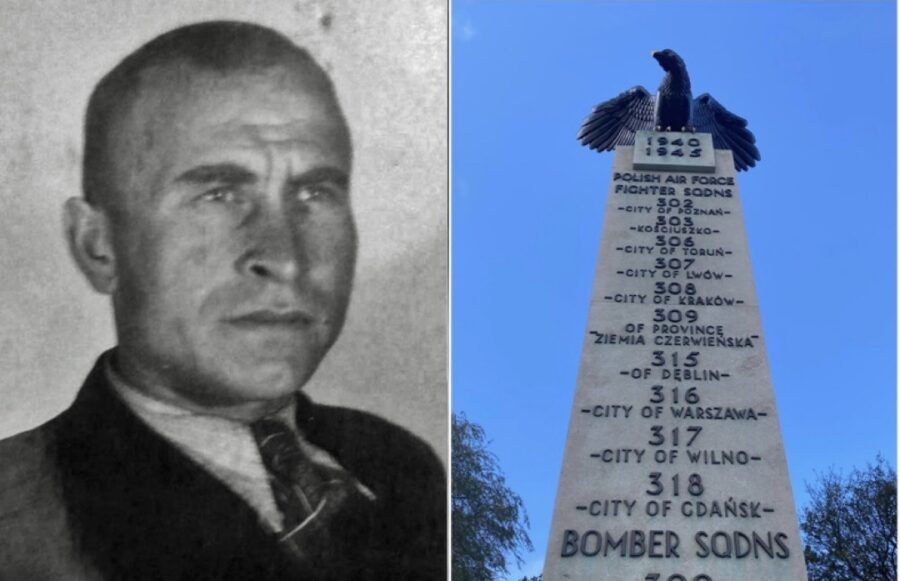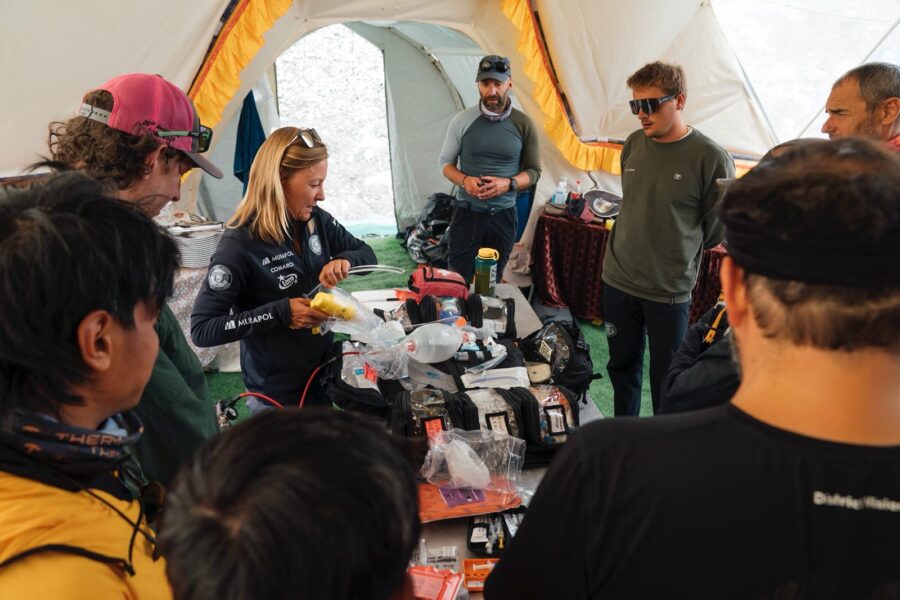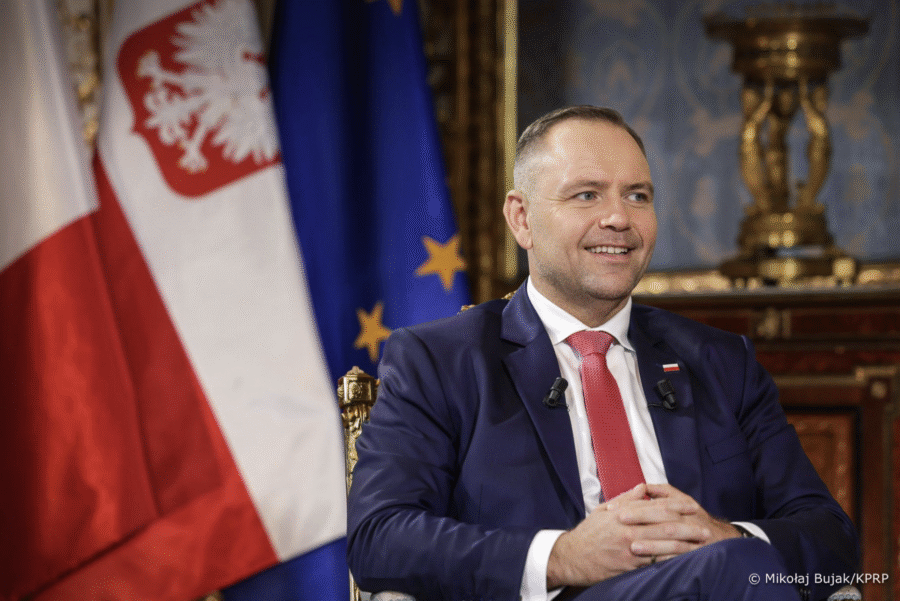As British Poles readers know, Poland is often poorly portrayed in the media—particularly when it comes to the country’s immense contribution to the Allied cause during the Second World War and even worst the failure to report the suffering endured by ethnic Poles. One striking example is the repeated use of misleading terms such as “Polish concentration camp,” “Polish concentration camps,” “Polish death camp,” “Polish death camps,” “Polish extermination camp” and “Polish extermination camps.” These six phrases (known as “key issues” from now on) have appeared at least 5,292 times worldwide, according to data from a Polonia research project.
Poland was long constrained by decades of Soviet-controlled rule, which promoted distortions about the country’s role in the Second World War. Historians, the Polish government and cultural institutions have in recent years made progress in addressing and correcting these narratives.
Yet the task is far from complete, and others need to take their part. How do we know this? Well, that is where Encountering Anti-Polonism (EA-P) comes in. British Poles will reveal for the first time some of what their data is saying.
First, however a little about EA-P. Formed from the merger of three Polonia groups and one project founded between 2005 and 2012, EA-P challenges misrepresentations of Poland by converting media articles into quantitative data. This method allows researchers to track which outlets provide fair, neutral, or misleading coverage of Poland’s history and identity.
The project already holds nearly 20,000 rows of data on these issues, but the organisers stress that more research is needed to confirm patterns and provide a definitive picture. To achieve this, EA-P is seeking both financial backing and volunteer support.
Daily reports and key questions
EA-P plans to publish reports almost daily, in four categories:
- Yearly analyses – tracing misattributions from 1939 onwards.
- National media reviews – assessing the influence of leading outlets in each country.
- Regional coverage – focusing on countries with fewer English-language publications.
- Special studies – tackling recurring issues, from misuse of terms like “Polish death camps” to overlooked contributions such as Polish cryptologists’ early work on the Enigma code.
Their reports will seek to answer pressing questions, including:
- How fairly are Nazi German camps in other occupied countries covered compared to those in German-occupied Poland?
- When errors are identified, do media outlets correct them?
- Are pogroms against Jews in countries beyond Poland proportionally reported?
- Who is portrayed as a hero—Nazi party members or genuine Polish figures?
- Are Poles properly recognised among the victims of Nazi German camps?
- Who are identified as the perpetrators in these narratives?
- How is Poland represented as an occupied nation during the war?
All reports will be available on Patreon, with some free content made later on the EA-P website and very occasionally on their Facebook group.
To provide wider context, EA-P is developing The EA-P Guide to Poland and World War Two, an introductory booklet designed to make these complex issues accessible to a broad audience.
Discussion with the founder about the data
For founder Jan Niechwiadowicz, the initiative is the culmination of decades of personal commitment. He has been recognised with awards including Człowiek Roku from Dziennik Polski, SPK membership, and the Bene Merito honour. His connection to Poland began with childhood experiences of bullying over his heritage—an adversity that deepened his loyalty, first through sport and later through a broader campaign to support Poland on many fronts.
Unlike professional historians, EA-P does not work with primary documents or witness testimony. Instead, its focus is on press analysis: how language, framing, and repetition shape public perceptions of Poland’s role in the war.
The organiser said their ultimate goal is to produce the most comprehensive account to date of how Poland has been portrayed in international media, with documented evidence of both fairness and bias.
Patterns, however, are not straightforward. EA-P data show that the number of “key issues” has declined since a peak in the early 2010s. Yet with fewer cases overall, sudden spikes are now more visible. A visit by a British royal or a Pope to a German death camp in what was occupied Poland, for example, can still generate a sharp rise in misattributed terms. Another thing which sets EA-P’s work apart is the level of detail: each entry records five separate columns of information to identify the cause of the error.
In the UK, the Daily Mail tops the list with 23 recorded “key issue” cases, followed by The Independent (22), The Guardian (19) and the BBC (15). Jan Niechwiadowicz noted that the worst offenders are newspapers, reflecting a global trend in which print outlets account for around two-thirds of all cases. In total, EA-P has identified 237 offenders in Britain.
EA-P cautions that raw numbers do not tell the full story. The Independent has corrected only two errors and partially addressed two more, leaving it with the highest number of unresolved cases. By contrast, the Daily Mail—though the biggest offender by volume—falls to joint fifth place when ranked by unresolved issues.
EA-P also highlighted the importance of examining the original sources of articles. Focusing only on the media outlet can obscure the role of news agencies: Reuters, for example, ranks fourth in the UK for the “key issues”. This pattern varies internationally. While the Associated Press has not been linked to any UK cases, it is the worst global offender, responsible for 674 recorded instances.
EA-P stresses that using the adjective “Polish” in relation to Nazi German camps in occupied Poland is misleading and offensive. By the same logic, if such phrasing were applied to German camps in the Channel Islands, describing them as “British” or “English,” it might be considered fair. Yet while 81 British newspapers have used the offensive terms for Poland, only one has used it for the Channel Islands’ camps in this way. This is the Daily Mail. The Daily Mail is an equally opportunity offender using incorrect terms implying the Nazi German camps were British, Czech, Dutch, Estonian, Italian, Lithuanian, and of course Polish.
If it seems striking that 81 British newspapers have used the adjective “Polish” in reference to Nazi German camps—compared with just one for those in the Channel Islands—Jan Niechwiadowicz points to an even more startling fact. Britain itself operated concentration camps, most notably in South Africa and Kenya. Yet of the 81 outlets that mislabelled camps in occupied Poland, only 16 have ever applied similar terminology to Britain’s own.
EA-P has much more to reveal. A new book, due for release in July next year, will explore how ancient Greek ideas continue to shape modern perceptions of Poland. Readers of British Poles who would like to learn more about EA-P’s work are invited to get in touch, and the organisation has pledged to share further findings on these issues.
Interested in supporting the EA-P project can contribute financially via https://www.patreon.com/user?u=81401631, contact Jan at contact@ea-p.info, visit their website ea-p.info or join their Facebook arm https://www.facebook.com/groups/Encountering.anti.Polonism
Jan Niechwiadowicz









